The Boy Scouts In Russia - [34]
"No. I think that's easily accounted for, Fred. There is a crossroad less than half a mile beyond that culvert. They will suppose that we mean to take the turn. Ivan would have thought of that, I'm sure, if there had been any danger that they would not expect us to be traveling on this road."
"I guess you're right, Boris. It sounds reasonable. And anyway, if there is a chance, we've got to take it. I'm certainly not going to hesitate just for that after we've come as far as this. We'll soon know because, as you say, once we're past that culvert, we'll be safe. That's the crucial spot."
The grade grew sharper as they descended, and the pace of the car increased. Now, at the bottom, stretching across the white road, they could see a heavy shadow and above on what was unquestionably the railway, half a dozen lights.
"They've got more than a sentry there. It seems to be a regular post," said Fred, a little nervous, as they approached. "I'd like to slow down here-we're taking this hill pretty fast."
"Yes," agreed Boris, who was driving. "But it's not just the time to slow down, is it?"
"Hardly. We've got to shoot under there so fast that they won't have a chance to find out too much about us. The headlight will help us, too. It ought to dazzle them so that they won't be able to see into the car at all. As soon as we're close to them, I'm going to sound the bugle pretty steadily."
They rushed on toward the culvert faster and faster. The powerful headlight illuminated the scene before them, and they could see a dozen or more dark figures. And as they came closer, they saw that several men were looking at them, trying to shade their eyes with their hands.
Fred sounded the bugle steadily now, and saw that this seemed to relieve the watchers. For the first time he took his eyes from the culvert itself and looked around. The road here descended much more steeply than the railway, and that, Fred judged, was the reason for the culvert. For the first time he realized that the culvert was not quite at the bottom of the hill; that beyond it the road still bore downward quite sharply for a space, until it turned. It was plain to him that there were more dangers ahead than those represented by the soldiers on the culvert.
The pace of the rushing car was faster now than would have been altogether comfortable had they been on a road they knew perfectly. Here, with a curve just ahead that was an unknown quantity, there was real danger in the sheer speed of the machine. Heavy as the car was, it lurched and swayed from side to side. And simply to shut off the power would not have been enough. Moreover, that was something both of them would have feared to do. The slightest mischance, the most trifling circumstance, might arouse suspicion in the watchers on the culvert. It was necessary, and Ivan had warned them specially of this, to dash under that at the highest possible speed for there would be stationed not private soldiers alone, who would be likely to take it for granted that an officer's coat and helmet meant that all was well, but an officer as well.
And an officer would be curious as to the meaning of this solitary car, rushing over a road that had been deserted, in all probability, for at least two days. No, there could be no slowing down, even had the fearful grade made it possible.
Then they flashed into the shadow. For just a moment, before they were actually under the culvert, Fred, looking up, saw the white faces of those above, staring curiously. Then he lowered his head, for he knew that his face and Boris's gave the lie to their helmets. Streaked with dust they both were, to be sure. There had been a mist in the low-lying country through which they had come, and the flying dust of the higher, drier parts of the road had caked on their faces. But they were not the faces of officers.
Fred thought he heard a shout as they passed under the culvert. But shouts were not enough to check them. What they both feared was a volley. And that, as they passed out and beyond the menace of the culvert, did not come.
"Look back! See if they are looking after us!" cried Boris.
"No!" Fred shouted in his ear, for now the rush of the wind made it difficult for them to hear anything. "The light is on us now-they might see too plainly. And, if we were officers going as fast as this, there would be no reason for us to look back-Oh! Look out!"
They had come to the turn. So great was their speed that they seemed to reach it before they were well out from the shadow of the culvert, yet they had traveled two hundred yards or more. There was nothing really to frighten Fred as he cried out unless it was the sudden imminence of the turn, which had seemed much further away when they had first seen it. It was less what he saw than some indefinable thing he felt.
Whether Boris's hand was wavering or whether some hitherto unsuspected weakness had developed in the machine, Fred could not tell. But he seemed to sense somehow that all was not well. There was some break in the rhythm of the car's movement that warned him.
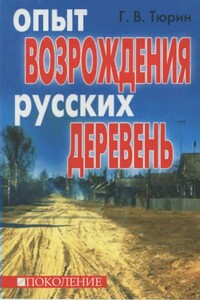
Плачевная ситуация в российских деревнях известна всем. После развала масштабной системы государственного планирования исчезли десятки и сотни тысяч хозяйств, произошел массовый отток населения из сельских районов, были разворованы последние ценности. Исправление ситуации невозможно без эффективного самоуправления в провинции.Организованный в 1997 году Институт общественных и гуманитарных инициатив (ИОГИ) поставил перед собой цель возрождения сельских районов Архангельской области и добился уникальных результатов.
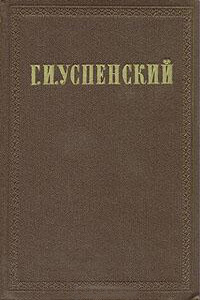
В настоящее издание включены все основные художественные и публицистические циклы произведений Г. И. Успенского, а также большинство отдельных очерков и рассказов писателя.
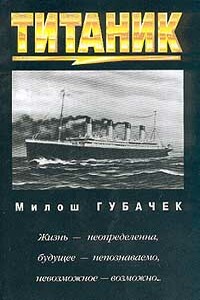
В ночь с 14 на 15 апреля 1912 года гигантское судно «Титаник» увлекло в ледяную бездну 1500 человек. Об этой одной из крупнейших в мире морских катастроф снято более десятка кинофильмов, написано около 50 книг, опубликовано шесть сборников стихов и две пьесы.Предлагаемая книга о «Титанике» является, по мнению критиков, лучшим и наиболее полным изданием на эту тему в мировой литературе. Ее автора отличает блестящее знание предмета и эпохи, а также тщательность и обстоятельность анализа событий, связанных с гибелью «непотопляемого плавучего дворца».
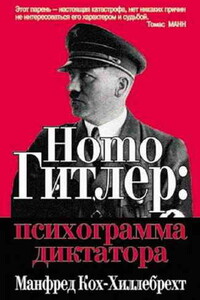
До сих пор историки многого не знают о Гитлере. Каковы были мотивы его мыслей и поступков? На чем основана легенда о его громадных знаниях и сверхчеловеческих способностях влиять на людей? Автор этой книги, немецкий профессор, в результате долгих и кропотливых исследований создал психограмму человека, возглавлявшего III рейх.
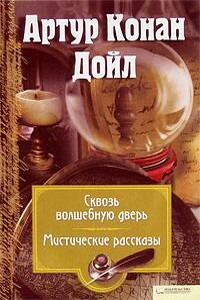
В настоящей книге Конан Дойл - автор несколько необычных для читателя сюжетов. В первой части он глубоко анализирует произведения наиболее талантливых, с его точки зрения, писателей, как бы открывая "волшебную дверь" и увлекая в их творческую лабораторию. Во второй части книги читатель попадает в мистический мир, представленный, тем не менее, так живо и реально, что создается ощущение, будто описанные удивительные события происходят наяву.

В книге рассказывается история главного героя, который сталкивается с различными проблемами и препятствиями на протяжении всего своего путешествия. По пути он встречает множество второстепенных персонажей, которые играют важные роли в истории. Благодаря опыту главного героя книга исследует такие темы, как любовь, потеря, надежда и стойкость. По мере того, как главный герой преодолевает свои трудности, он усваивает ценные уроки жизни и растет как личность.